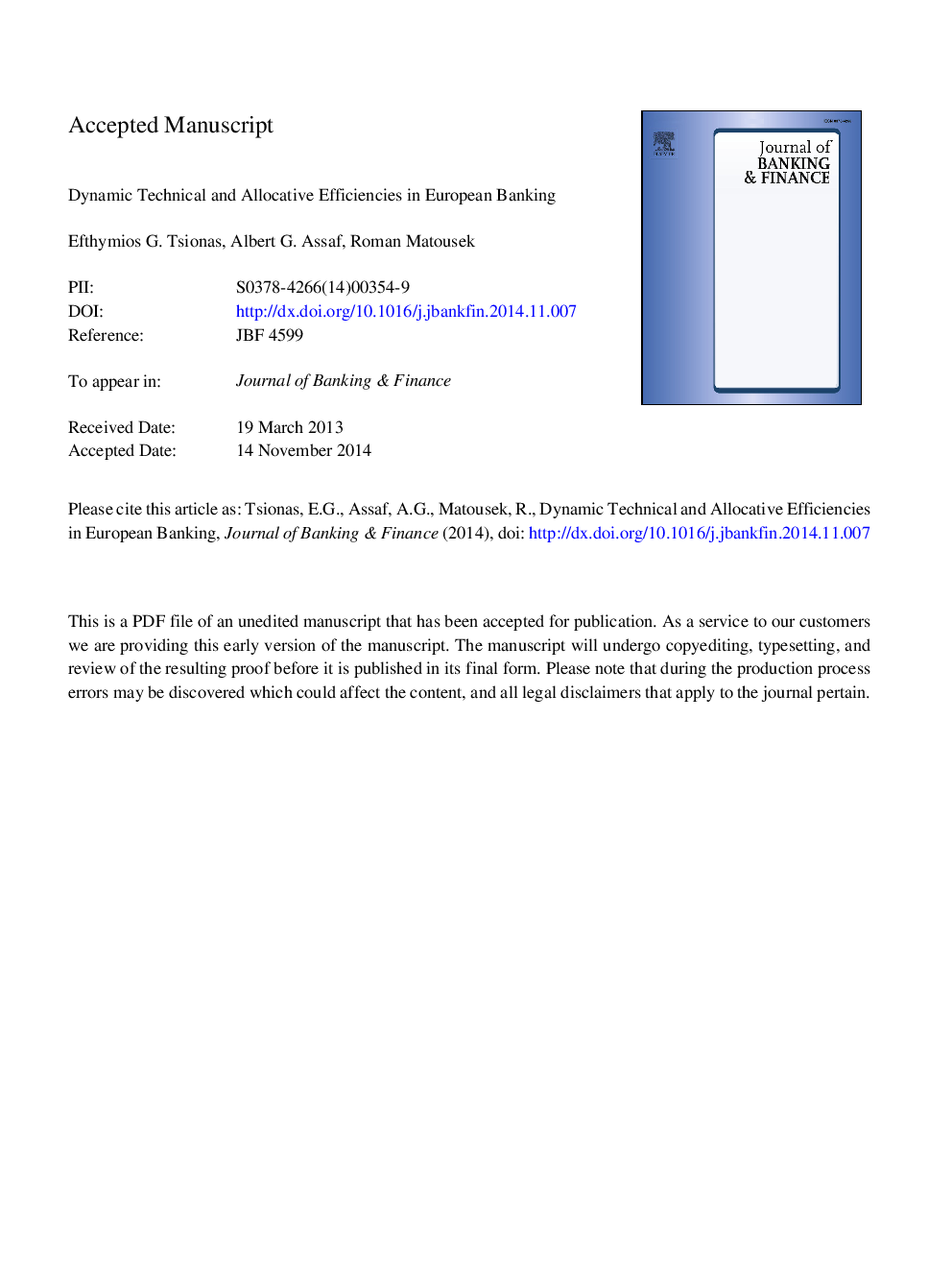| Article ID | Journal | Published Year | Pages | File Type |
|---|---|---|---|---|
| 5088743 | Journal of Banking & Finance | 2015 | 38 Pages |
Abstract
This paper examines the performance of European banks during the pre-crisis and post-crisis periods, both in terms of technical and allocative efficiencies. We use an innovative Bayesian dynamic frontier model that: (1) distinguishes between short-run and long-run performance; and (2) provides impulse response functions to examine the dynamic effect of shocks in technical and allocative inefficiencies. Based on a rich sample of European banks, we show that while there was a drop in efficiency for most countries following the crisis, the long-run results suggest improvement both in terms of technical and allocative efficiencies. The impulse response functions also show that in the case of shocks in the system, banks seem to revert back to these long-run allocative efficiency scores. We discuss the results in terms of the current financial crisis and provide interesting implications for the European banking industry. We also discuss the determinants of technical and allocative efficiencies. (We would like to thank Professor Allen N. Berger and Professor Andy Mullineux for their valuable comments on the early version of this paper.)
Related Topics
Social Sciences and Humanities
Economics, Econometrics and Finance
Economics and Econometrics
Authors
Efthymios G. Tsionas, A. George Assaf, Roman Matousek,
